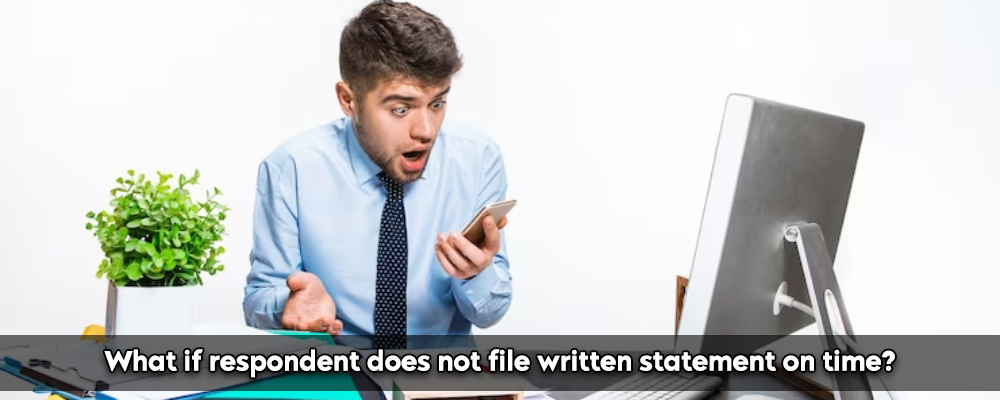The procedural law that establishes the standards for the operation of our nation’s civil courts is the Code of Civil Procedure of 1908. It establishes the guidelines for civil lawsuits.
Written statements are covered by Order VIII of CPC. The defendant is required to submit a written statement in response to a plaint that initiates a lawsuit. Order VIII contains a number of rules that specify when and how the written statement must be filed as well as the penalties for failing to do so.
Need A Legal Advice
The internet is not a lawyer and neither are you. Talk to a real lawyer about your legal issue

Written Statement: About
- The Code of Civil Procedure does not define the term written statement. It is a term with a specific meaning that typically denotes a response to the plaintiff.
- In other words, it is the defendant’s pleading in which he addresses the important fact that the plaintiff had claimed in his plaint, adds any fresh information to his favour, or raises a legal challenge to the plaintiff’s claim.
Written Statement: Who Can File?
- The defendant is supposed to submit a written statement.
- Nonetheless, the defendant has the option to file it via an agent he has authorized. It cannot be submitted by a non-party to the dispute.
- If there are several defendants, a written statement that is signed by each of them or at least confirmed by one of them who is aware of the facts might be used.
Time Limit for Filing Written Statements by the Defendant
- The Code of Civil Procedure, 1908, Order VIII Rule 1, establishes a deadline for the defendant to file written statements.
- The procedural provision guarantees that the defendant will not abuse it to harass the plaintiff by utilizing it to postpone the proceedings and gives the defendant enough time to provide a written statement following the receipt of the summons.
- According to this clause, the defendant has 30 days from the date of the summons to provide a written response, or written statement (subject to the defendant receiving the summons).
- The time limit for submitting a written statement may be extended up to 90 days if the defendant does not file it within 30 days, and the court must record the justification for the extension.
Discretion of the Court: Acceptance of the Written Statement
- In the event that the defendant fails to submit the written statement within the allotted time frame, he must do so as soon as possible and submit an application for a delay in filing it, hoping that the delay would be excused.
- But there needs to be a good reason that isn’t within the party’s control. The court will accept the application and move forward if the justification is acceptable; if not, the court will reject the application.
Filing of Written Statements by the Defendant: Case Rulings
- In the case of Atcom Technologies Ltd. v Y.A Chunawala and Co, the Hon’ble Apex Court reaffirmed that, under extraordinary circumstances, the court may continue to accept written statements beyond the 90 days deadline. The defendant must give the court very compelling justifications for why the 90-day period should be extended.
- In the case of Deshraj v Balkishan, the ruling in the above-mentioned case regarding the filing of written statements in non-commercial litigation was upheld by the Honourable Supreme Court. The Supreme Court underlined once more that a case’s unusual circumstances can legitimately justify allowing the filing of a written statement beyond the allotted 90 days.
You will need the help of lawyers to help you draft your written statement and help you file them in the court within the time frame.
One can talk to a lawyer from Lead India for any kind of legal support. In India, free legal advice online can be obtained at Lead India. Along with receiving free legal advice online, one can also ask questions to the experts online free through Lead India.





 Talk to a Lawyer
Talk to a Lawyer